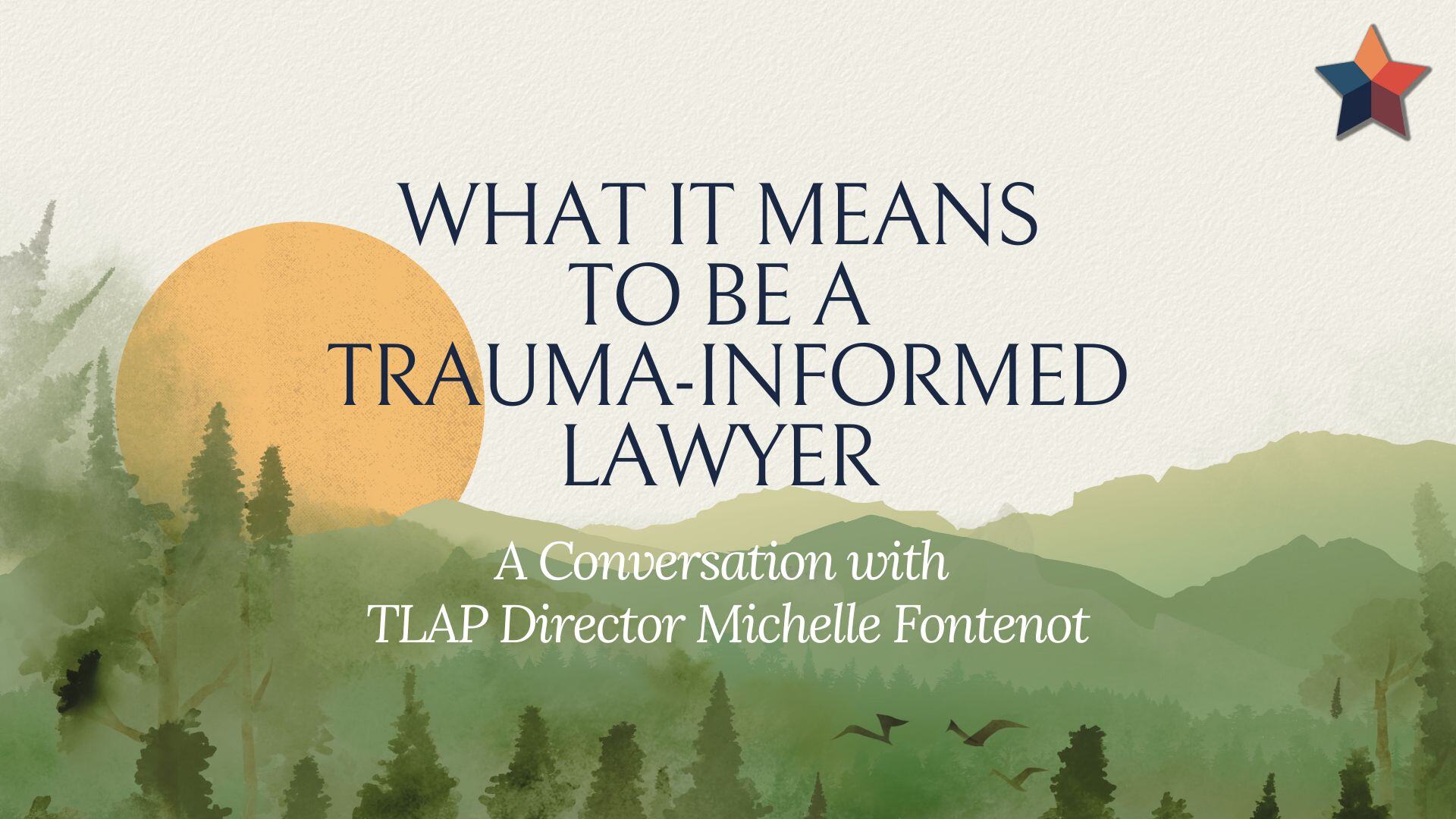What it Means to be a Trauma-Informed Lawyer
Published on February 24, 2025 Lawyer Life

Trauma-informed lawyering is a framework for lawyers to acknowledge their clients' trauma, thus providing legal services that are both effective and caring. By recognizing the far-reaching effects of trauma, you can do your part in providing the advocacy your clients require.
Being a trauma-informed lawyer doesn't mean you should act as a therapist for your clients. This is a common misconception, especially for lawyers who work with highly traumatic cases that feature violence or abuse. Trauma-informed lawyering gives lawyers the foundation to create an environment for clients to feel comfortable enough for any anxiety or tension to dissipate.
Trauma-informed advocacy is also a method of self-care. Burnout and compassion fatigue is common among lawyers. While it's necessary to advocate for clients, it's also crucial to practice self-care to counteract the effects of compassion fatigue. Setting boundaries, managing stress, and seeking support are great ways to work toward bolstering your mental health as a law practitioner which will help to improve the way you practice law.
 Texas Bar Practice recently had the pleasure of speaking with Michelle Fontenot, J.D., M.Ed., Director of the Texas Lawyers' Assistance Program (TLAP), about trauma-informed lawyering and why it matters to lawyers and clients alike.
Texas Bar Practice recently had the pleasure of speaking with Michelle Fontenot, J.D., M.Ed., Director of the Texas Lawyers' Assistance Program (TLAP), about trauma-informed lawyering and why it matters to lawyers and clients alike.
TLAP helps law students, young lawyers, practicing lawyers, judges, and legal professionals who are facing substance use and other mental health issues including stress, anxiety, and cognitive decline.
To learn more about TLAP, visit their website or call or text them at 1-800-343-TLAP (8527).
Support is strictly confidential and respectful.
How would you define trauma-informed lawyering?
I define trauma-informed lawyering as a lawyer’s ability to recognize the trauma that their clients have experienced and to be sensitive to their client’s anxieties and needs. As the TLAP Director, my focus is on helping the legal community develop an awareness of the potential for trauma to those in the legal field as well as lawyering that promotes and creates the space to talk about the trauma of the work that lawyers engage in.
What constitutes “trauma”?
This is a complicated question. Trauma is defined differently by many different people. Trauma is generally defined as exposure to actual or threatened death, injury, or violence. Trauma can be direct, as in something that happened to you, or indirect, as in something that happened to someone else, but is something that we help them with or know about.
Why is trauma-informed lawyering important?
Trauma-informed lawyering is important because lawyers often experience indirect trauma in our work. We encounter and work with people who have experienced traumatic car wrecks, medical issues, death and loss of loved ones, divorces and more. In working as lawyers with these clients, we are looking to advocate for our client’s best and in doing so, we hear their stories, see the videos and photos of damage, and craft their testimony to help them out. We are impacted by all of this whether we know it or not.
Why should lawyers be aware of trauma-informed lawyering even if it doesn't seem outwardly applicable to their law practice?
There have been surveys conducted about wellness in the legal community. Lawyers use substances more than the general population, they are stressed and depressed more than the general population, and they are considered the loneliest profession. In order for the legal profession to get healthier and thrive, we have to recognize that lawyers should watch out both for themselves and each other.
How can one become a trauma-informed lawyer?
To become a trauma-informed lawyer, all you have to do is start talking with your colleagues, your staff, and your friends about your experiences of the practice of law and its impact on you. Create the space to express the emotional impact of the law on your team and I bet you will have a happier, healthier, and more productive team.
Should every lawyer be trauma-informed?
Yes.
Further Reading About Trauma-Informed Lawyering
.png)
Texas Bar Practice
Texas Bar Practice works with the most experienced and knowledgeable judges and attorneys to prepare and edit books, practice manuals, and legal forms to help lawyers and judges better serve the public with professional, accurate, and timely information.